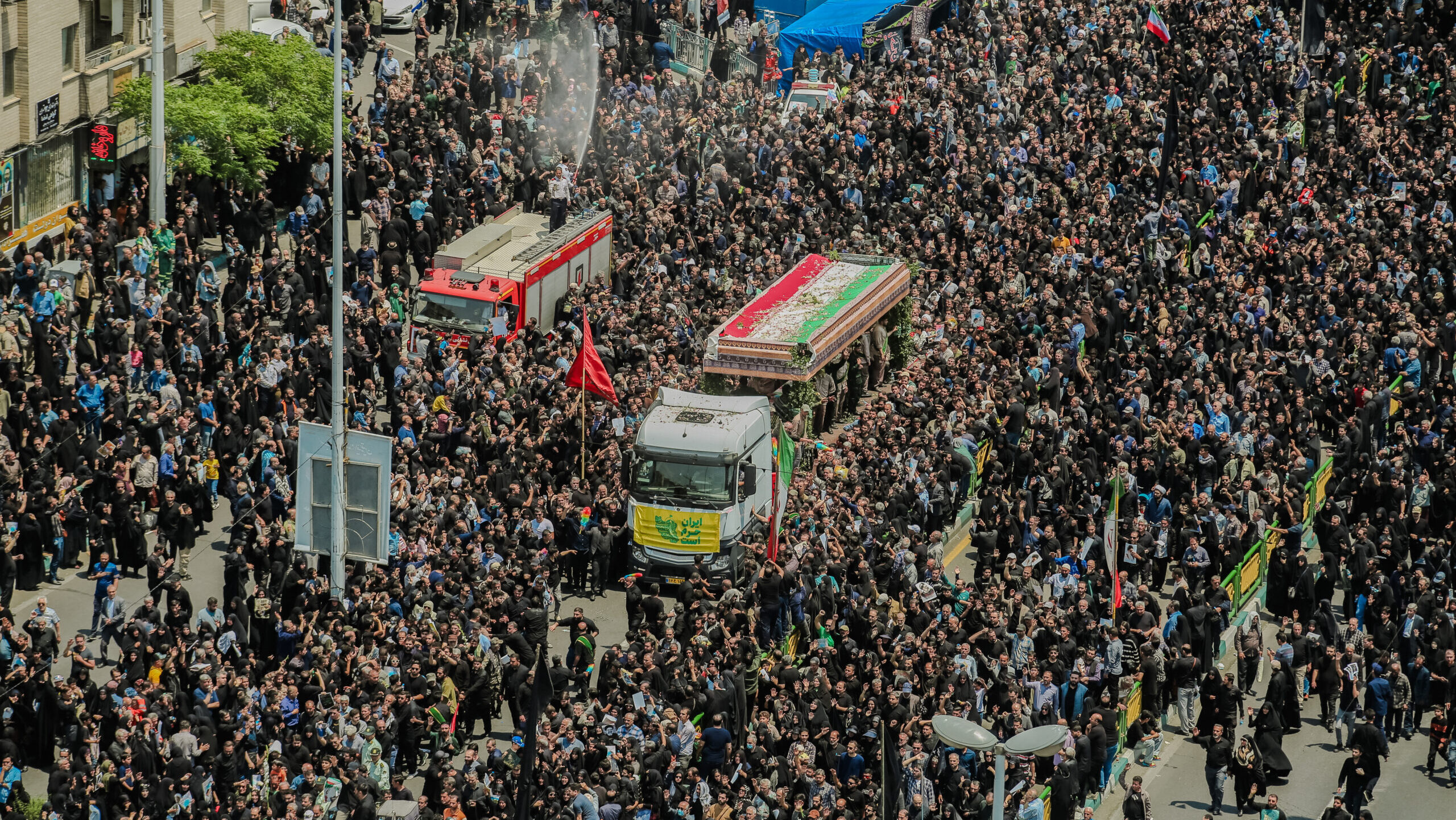Who Will Lead Iran Next?
Asharq Al-Awsat, London, May 23
The death of Iranian President Ebrahim Raisi is poised to significantly diminish the influence of the “Mashhad circle” within the inner sanctum of Supreme Leader Ali Khamenei’s decision-making group. The future role of Raisi’s father-in-law, the powerful Ahmad Alamolhoda, now hangs in the balance. Alamolhoda, a towering figure in the Mashhad constituency, serves as Khamenei’s representative in Razavi Khorasan province. Whether he can retain his influential position remains to be seen. A pressing question emerges: Will the Islamic Revolutionary Guard Corps seize this opportunity to marginalize the clerics and consolidate power? The IRGC has a reputation for being more flexible and adaptable than the traditional clerics steeped in antiquity. One could speculate if they might eventually become ceremonial figures of the state. Those who claim to know the answer are indulging in wishful thinking, as change seems inevitable. Iranian state media reported that Raisi and other passengers had “achieved martyrdom.” With his passing, the pool of potential successors is considerable. In the short timeframe of 50 days, seasoned candidates stand a better chance, though none carry a significant legacy. Known to some as the “Butcher of Tehran” due to his involvement in the execution of 33,000 victims in the 1980s, Raisi was seen as a potential future leader. His replacement should be carefully coordinated to consider the larger question of succession. Among the most prepared candidates is Mohammad Bagher Ghalibaf, and other figures like Ali Larijani who is also hoping for an opportunity to enact change. Other contenders, such as Parviz Fattah and Hossein Dehghan, might struggle to gain acceptance within the tight 50-day deadline. According to Article 131 of the Iranian Constitution, in the event of the president’s death, the first vice president assumes presidential responsibilities with the supreme leader’s approval. Additionally, a council comprising the speaker of Parliament, the chief justice, and the first vice president must arrange for a new presidential election within 50 days. Among the optioned candidates, Ghalibaf, the speaker of Parliament, appears most prepared. He doesn’t need special permissions or a rushed introduction. Compared to Raisi, Ghalibaf is a more pragmatic figure, capable of addressing some existing governmental issues. He can navigate parliamentary impasses and might use Parliament as a tool of control. Larijani’s candidacy depends on the supreme leader’s willingness to permit significant shifts in policy. Larijani’s qualification may be confirmed only after considerable deliberation. Mohammad Javad Zarif stands out as a viable option for addressing foreign and some internal crises. Unlike Larijani, Zarif lacks a large organizational base, making him less likely to interfere in leadership succession. Fattah has been floated as a candidate in various election cycles but he is not a significant contender in the current public opinion. Previously considered during the 2017 elections, Fattah ultimately declined to run in line with the supreme leader’s directive. This history suggests he could gain Turkish-speaking votes, an influential factor in past elections. Dehghan represents the Revolutionary Guard’s choice. He might attract diverse support, and his military backing is significant, though his candidacy might require a substantial shift in the governmental atmosphere. Mahmoud Ahmadinejad presents an unpredictable option. His approval would be more challenging to secure compared to Larijani, though he shares the trait of not having a specialized team capable of controlling institutions. Younger politicians like Alireza Zakani and Mehrdad Bazrpash are eager to make their mark. However, given the urgent timeline, the government might opt for safer, more established choices. The unexpected vacancy of the presidency has also raised the prospect of clerics, such as Mostafa Pourmohammadi, entering the race. However, the unpredictable actions of Mojtaba Khamenei, the supreme leader’s son, generate significant anxiety among presidential hopefuls. His methods for achieving leadership remain dubious, suggesting a consolidation of power centered around him if other options fall away. —Huda al-Husseini (translated by Asaf Zilberfarb)
Give the gift of hope
We practice what we preach:
accurate, fearless journalism. But we can't do it alone.
- On the ground in Gaza, Syria, Israel, Egypt, Pakistan, and more
- Our program trained more than 100 journalists
- Calling out fake news and reporting real facts
- On the ground in Gaza, Syria, Israel, Egypt, Pakistan, and more
- Our program trained more than 100 journalists
- Calling out fake news and reporting real facts



